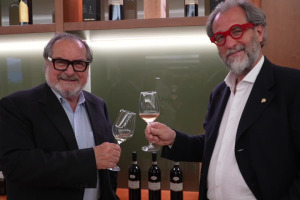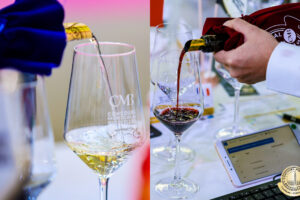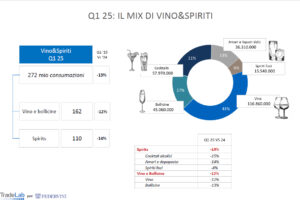Historically, daily nutrition and food knowledge belong to women, but today food and the kitchen are no longer only woman’s realm/territory. Apparently so, because on one hand, chefs are more and more determined and serious about responding to the growing need for expertise and knowledge, while on the other, when it comes to performances that go beyond the kitchen, from healing to therapeutic uses, women have the leading role. And, even more so for food education which belongs to women - mothers.
Food seen through female eyes, according to a pool of experts in the medical, academic, food and entrepreneurial worlds during the conference "Women and food. Female Nutrition", at the Cam-Centro Analisi Monza, in Monza on May 21st. Historically and anthropologically, knowledge of food has always been women's expertise, not only in relation to the culinary and everyday eating, but also in relation to the knowledge and use of foods for health and to heal ailments.
“Nutrition deeply affects the quality and duration of life”, explained Professor Vittorio A. Sironi at the Bicocca University in Milan, “and over the centuries, food knowledge has always been the woman’s heritage. Just think of the concept of nutrition linked to healing in folk tradition and the therapeutic value concept of food that still permeates today's culture”.
“The health of an individual is built over time, starting in the prenatal stage”, said Sergio Bernasconi, Ordinary Professor of Pediatrics, former director of the Pediatric Clinic of the University Modena - Reggio Emilia and Parma, “and, at this stage, the behavior of the mother-to-be greatly influences the health of the unborn child. It has been proved, for instance, that maternal obesity is related to the risk of the child developing future cardiovascular diseases. Another aspect highlighted by the new prospective studies was the relationship between excessive weight gain during pregnancy and the greater likelihood of future obese children. The first thousand days, counting from conception, are crucial. This is the stage, more than the others, which affects the physical as well as cognitive, emotional and relational health of the child and therefore, the role, behavior, lifestyle, and dietary habits of the mother is absolutely essential”.
Emphasizing the role of the female figure, not only her parental but also her professional profile, Alessandra Baruzzi, Lady Chef coordinator of the Italian Federation of Chefs, underlined that there are 3.000 female chefs in Italy today, and said, “Women are being reevaluated in restaurants and now the spotlight is on the fundamental role of the female figure in the kitchen, after having given wide given wide media coverage particularly to male chefs for a long time”.
Silvia Briganti, Food Science specialist of Cam, the concept has analyzed nutrition at varying phases of a woman's life and that food should be considered in all respects "Energy for Life". “For a little girl, the dietary regime should be rich in foods with a high content of biological proteins, to promote -balanced growth. In this phase, fat content must be moderate and glucose lower, because of rapid consumption due to high energy, which is concentrated mainly in the 3-6 year age group. Calcium and iron intake are essential especially at this stage”.
The specialist then emphasized that the adult woman should observe a maintenance dietary regime, taking into account that energy requirement is the sum of the energy required for the basal metabolism and the energy needed for functions related to digestion, work activity and environmental conditions, which are significantly different in men and women. As for the elderly”, concluded the doctor, “it is important to take into account functional changes adapting a qualitatively balanced diet, characterized by a progressive decrease in calorie intake”.
Finally, regarding the psychological factor, according to Silvia Rinaldi, specialist in Clinical Psychology and Cognitive Psychotherapy, the modern day woman cannot ignore the relationship with food and must be aware of the meaning it has in their own lives as well as their interpersonal relationships.
Copyright © 2000/2025
Contatti: info@winenews.it
Seguici anche su Twitter: @WineNewsIt
Seguici anche su Facebook: @winenewsit
Questo articolo è tratto dall'archivio di WineNews - Tutti i diritti riservati - Copyright © 2000/2025







































































































































































































